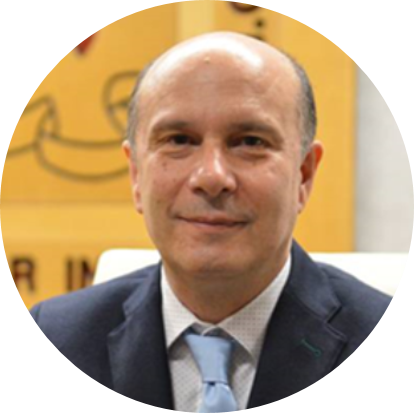
Energies Webinar | Energy Production by Biomass Thermal Treatments
Part of the MDPI Energies Webinars series
28 April 2021, 00:00
Biomass, Gasification, Combustion, Pyrolysis, Thermochemical conversion, Carbon Capture
Webinar Information
1st Webinar Series on Energies - an Open Access Journal
Energy Production by Biomass Thermal Treatments
The objectives of limiting global warming to well below 2 °C above pre-industrial levels and of pursuing efforts to restrict it to 1.5 °C have prompted the need to minimise the dependence on fossil fuels. In this scenario, biomass presents a series of advantages such as CO2 life cycle neutrality, renewability and worldwide availability, among others. In recent years, there has been a renewed interest in the different biomass thermal treatment processes, i.e., torrefaction, pyrolysis, combustion and gasification for the production of biochar, bio-fuels, heat and power generation. Likewise, the different properties of biomass compared to coal have prompted the need to develop general models that address these differences and that can be implemented for the improved design and optimisation of biomass combustion and gasification boilers. This webinar will provide an overview of the thermochemical conversion of biomass, as well as advanced modelling efforts in biomass firing systems.
Chair: Prof. Dr. Fernando Rubiera
Date & Time: 28 April 2021 5:00 pm CST Asia | 11:00 am CEST
Webinar ID: 912 9890 8446
Webinar Secretariat: energies.webinar@mdpi.com
The following experts will present and speak:
|
Prof. Dr. Fernando Rubiera |
Prof Fernando Rubiera obtained his PhD in Chemistry from Oviedo University in 1991. With a Human Capital and Mobility grant from the EU, he joined British Coal (TSRE, Bretby) and then Nottingham University, from 1992 to 1995. Then, he started as a Tenured Scientist at the former National Coal Institute (now Institute of Carbon Science and Technology, INCAR-CSIC). Currently, he is a Research Professor and has been Director of the INCAR since 2015. He also acts as vice president of the Spanish Technology Platform, PTECO2, where he is in charge of the working groups of the Capture and Utilisation of CO2. He is the Editor-in-Chief of the Bio-Energy section of the Energies journal. His research lines have included the reduction of SO2 and NOx during coal combustion, the optimisation of fine coal cleaning processes, the co-utilisation of coal and biomass in combustion and gasification systems, the capture of CO2 and the catalytic production of hydrogen from biomass. |
|
Dr. Covadonga Pevida |
Dr. Covadonga Pevida is a Research Scientist at the Institute of Carbon Science and Technology, INCAR-CSIC, in Spain. With a MEng in Chemical Engineering from the University of Oviedo, she completed her PhD on the heterogeneous reduction of nitrogen oxides during coal combustion in 2004. She was awarded the Young PhD Researcher Award from the Spanish Carbon Group in 2005. She did two postdoctoral stays: at IRCELyon (CNRS-Université de Lyon 1) and the University of Nottingham. In 2017, she was a visiting researcher at the Research Centre for Carbon Solutions (RCCS), Heriot-Watt University (Edinburgh). Her current research interests focus on biomass utilization for energy and value-added products. In particular, the production of H2 from renewable bioresources and the development of solid sorbents for gas separation (e.g., CO2 capture) are her two main research lines. |
|
Dr. Chungen Yin |
Chungen Yin obtained his PhD in Energy Engineering from Zhejiang University in 1998. From 1998 to 2004, he worked at Zhejiang University as an Assistant Professor, in Ecole des Mines de Douai as a Postdoc and in Aalborg University as an Assistant Professor, respectively. Since 2004, he has been an Associate Professor in Aalborg University. His research and teaching interests are mainly in the area of thermal/fluids engineering. He has extensive R&D experience and competence in the thermochemical conversion of biomass for heat, power and fuel production and related CFD (computational fluid dynamics) modelling. He is among the world's 100,000 top-scientists across all fields, according to the career-long citation impact (https://dx.doi.org/10.17632/btchxktzyw.2) |
|
Dr. Ondřej Mašek
|
For the past eighteen years, my research has been dedicated to various aspects of the thermo-chemical conversion of biomass and fossil resources to added-value products, e.g., materials, electricity, heat, chemicals or fuels, and associated issues related to efficiency, sustainability and GHG emissions. In 2009, I joined the University of Edinburgh and together with colleagues, co-founded the UK Biochar Research Centre at the School of Geosciences. My research has since then been focused on the conversion of biomass to biochar and co-products for the purpose of atmospheric carbon sequestration, and adaptation to climate change (tackling environmental issues and making agricultural production more efficient and resilient). My research has initially focused on developing a fundamental understanding in the area of biochar production, and together with colleagues working on soil science and social science, develops a more general understanding of feedstock, processing and soil systems. More recently, building on this knowledge and data, my research has expanded towards targeted biochar products (engineered biochar) and informed selection, i.e., a more sophisticated method for biochar production and application, allowing higher desired impacts with lower inputs. This is an important direction of research and a critical step to facilitate the wider uptake and adaptation of sustainable biochar practices as a strategy for climate change mitigation and adaptation. One outcome/impact of this research to date has been the formation of a start-up company “Carbogenics” focussed on the development and production of biochar-based additives for the anaerobic digestion industry. Most recently, I started to work on the interaction between different biochar and other biomass processing technologies, to achieve the most effective solutions for climate change mitigation and adaptation, but also on the development of novel characterisation and analysis methods for biochar and pyrolysis product characterisation (e.g., synchrotron-based 4D x-ray -tomography, FT-ICR-MS ultra-high resolution mass spectrometry, and planar optodes for the microscale in situ dynamic observation of chemical properties and interactions between biochar and environment). Extensive work on synchrotron-based 4D x-ray -tomography since 2015 has yielded novel insights into the internal structure of biomass and the changes it undergoes during heating. |
Program
The webinar will start at 11:00 am (CEST) 28 April 2021 and will last maximum 1 hour and a half.
|
Presentation |
Time |
|
Prof. Dr. Fernando Rubiera Introduction |
5:00 pm (CST Asia) | 11:00 am (CEST) |
|
Dr. Covadonga Pevida Biomass Gasification and Reforming with in situ CO2 Capture |
5:05 pm (CST Asia) | 11:05 am (CEST) |
|
Dr. Chungen Yin Modelling of Biomass Combustion and Gasification |
5:25 pm (CST Asia) | 11:25 am (CEST) |
|
Dr. Ondřej Mašek Pyrolysis for Valorisation of Biomass Resources |
5:45 pm (CST Asia) | 11:45 am (CEST) |
| Q&A |
6:05 pm (CST Asia) | 12:05 am (CEST) |
Webinar Content
On Wednesday, 28 April 2021, MDPI and the Journal Energies organized the 1st webinar on Energies, entitled "Energy Production by Biomass Thermal Treatments". This online seminar was chaired by Prof. Dr. Fernando Rubiera, who is Research Professor and Director of the Institute of Carbon Science and Technology, INCAR-CSIC, in Spain. The three speakers Dr. Covadonga Pevida (INCAR-CSIC, Spain), Dr. Chungen Yin (Aalborg University, Denmark), and Dr. Ondřej Mašek (University of Edinburgh, UK) presented their research related to the thermochemical conversion of biomass and advanced modelling of biomass firing systems.
After a short introduction by the chair, Dr. Covadonga Pevida presented her research on biomass gasification and reforming with in situ CO2 Capture. The second speaker was Dr. Chungen Yin and his presentation explained the modelling of biomass combustion and gasification. Finally, Dr. Ondřej Mašek showed how to use pyrolysis for valorisation of biomass resources.
A Q&A session and a discussion, moderated by the Chair, was conducted at the end. The webinar was offered via Zoom and required registration to attend. The full recording can be found below. In order to stay updated on the next webinars on Energies, be sure to sign up for our newsletter by clicking on “Subscribe” at the top of the page.
Relevant Collections and Special Issues
Relevant Collections:
Feature Papers in Bio-Energy
Guest Editors: Fernando Rubiera González and Covadonga Pevida García
Bio-Energy Reviews
Guest Editors: Fernando Rubiera González and Covadonga Pevida García
Sections and Collections in Energies
Relevant Special Issues:
Energy Valorization of Sustainable Biomass and Bioresidues
Guest Editors: VItaliano Chiodo, Mauro Prestipino and Antonio Galvagno
Accepting submissions until 25 June 2021
Novel Technologies for Carbon Dioxide Sequestration
Guest Editors:Jorge Gabitto
Accepting submissions until 31 July 2021
Advanced Technologies for Biomass
Guest Editor: Andrea Di Carlo and Elisa Savuto
Accepting submissions until 30 November 2021
Recent Advances of Biomass Combustion and Gasification Technology
Guest Editor: Mengxiang Fang
Accepting submissions until 30 November 2021
Application and Development of Pyrolysis Technology
Guest Editor: Marek Sciazko and Wojciech Nowak
Accepting submissions until 25 November 2021
Biomass Combustion and Utilization for Energy Conversion
Guest Editor: Shuang Wang, Anqing Zheng and Xun Hu
Accepting submissions until 15 December 2021










